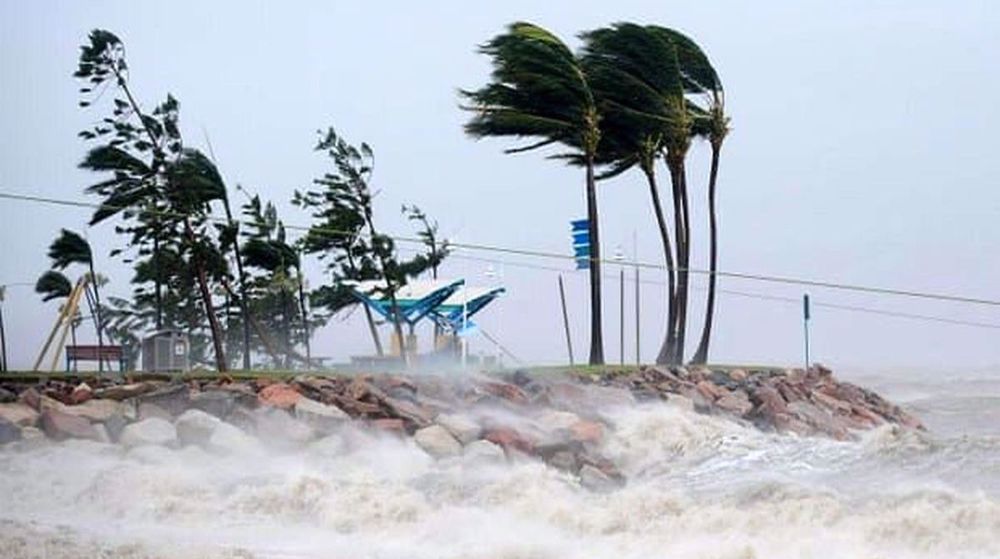Iran's oil market return not to cause oil price fall: Official
An Iranian Ministry of Petroleum official says Iran's return to global oil market will not necessarily lead to further drop in oil prices, provided that other producers adjust their crude output to make room for Iran.
Speaking to reporters on Saturday, Mehdi Asali said Iran's renewed presence in international oil market will not have a negative impact on crude prices, provided that other oil producers that have taken up Iran's share of the market reduce their output to help the market reach a balance at a new point.

Asali, who is Iranian Ministry of Petroleum’s secretary for OPEC affairs and relations with energy organizations, added that during the 167th ministerial meeting of the Organization of the Petroleum Exporting Countries (OPEC) in the Austrian capital city of Vienna last Friday, Iran told OPEC secretariat that once international sanctions against Tehran are lifted, it will boost crude output to pre-sanctions level.
“If countries that have been filling Iran's void in the market do not reduce their output upon Iran's return, oil prices may fall and those countries would be losers because Iran would double its crude exports and even if prices are reduced by half, the country will not suffer any financial repercussions,” he warned.
The official said Iran is currently exporting one million barrels per day (bpd) of oil, but it can increase that figure by 500,000 bpd in a short period of time following removal of sanctions and can add another 500,000 bpd in a matter of six months afterwards.
Sanctions against Iran were imposed by the US and European Union at the beginning of 2012, alleging that there was diversion in Iran's nuclear program toward military objectives; an allegation that Iran categorically rejected.
The Islamic Republic and the P5+1 group of countries – the US, the UK, France, Germany, Russia and China – reached a mutual understanding on April 2 in the Swiss city of Lausanne, which is considered a prelude to the achievement of a comprehensive deal on Tehran’s nuclear program before a self-designated deadline at the end of June. A key point of Lausanne statement was a promise to lift a series of economic sanctions on Iran – including those on the country’s energy sector.
In his address to the 6th OPEC International Seminar in Vienna, Iran's Minister of Petroleum Bijan Zanganeh said Iran's return to global oil market will be gradual once international sanctions against the country are lifted.
Emphasizing that Tehran attaches great importance to its share of the market, Zanganeh told Press TV, “…for long-term and mid-term [purposes], a new form of Iranian contract for new projects … will be introduced and we [will] sign new contracts based on this new framework and structure, which we believe will be more attractive for the investors” and international oil companies.

Also, speaking to reporters following OPEC’s ministerial meeting last Friday, Zanganeh said, “I wrote a letter to OPEC member countries. It is our right to return to the market.”
He added that other OPEC members should cut production to make room for Iran’s return to its former production level so that Iran's re-entry into the market would not lead to a new drop in oil prices.
SS/SS
VIDEO | Iranians mark Father’s Day coincided with Gen. Soleimani martyrdom anniv.
UK, France conduct joint airstrike near Syria’s Palmyra
Ultimately, Iran’s bold step to tame unruly inflation beast
‘Maduro abduction has Zionist tint’: Venezuela’s acting-president
Russia, China urge Maduro’s release after US abduction
Recently launched Iranian satellites successfully enter in-orbit testing stage
VIDEO | Protesters in Paris slam Israel’s revocation of NGO licenses in Palestine
Israeli minister lays claim to Gaza, West Bank, calls Palestinians 'temporary guests'










 This makes it easy to access the Press TV website
This makes it easy to access the Press TV website